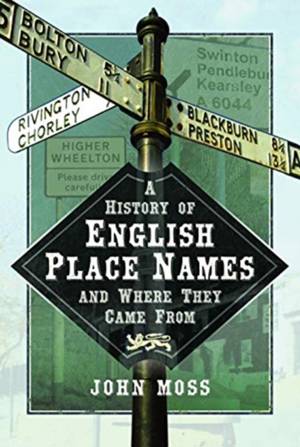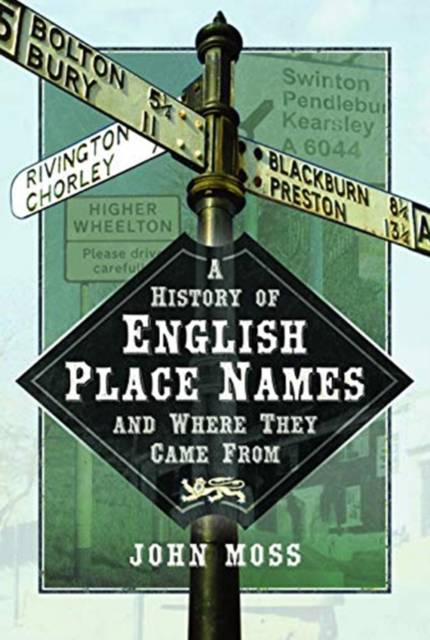
- Afhalen na 1 uur in een winkel met voorraad
- Gratis thuislevering in België vanaf € 30
- Ruim aanbod met 7 miljoen producten
- Afhalen na 1 uur in een winkel met voorraad
- Gratis thuislevering in België vanaf € 30
- Ruim aanbod met 7 miljoen producten
Zoeken
€ 34,95
+ 69 punten
Omschrijving
The origin of the names of many English towns, hamlets and villages date as far back as Saxon times, when kings like Alfred the Great established fortified borough towns to defend against the Danes. A number of settlements were established and named by French Normans following the Conquest. Many are even older and are derived from Roman placenames. Some hark back to the Vikings who invaded our shores and established settlements in the eighth and ninth centuries.
Most began as simple descriptions of the location; some identified its founder, marked territorial limits, or gave tribal people a sense of their place in the grand scheme of things. Whatever their derivation, placenames are inextricably bound up in our history and they tell us a great deal about the place where we live.
Most began as simple descriptions of the location; some identified its founder, marked territorial limits, or gave tribal people a sense of their place in the grand scheme of things. Whatever their derivation, placenames are inextricably bound up in our history and they tell us a great deal about the place where we live.
Specificaties
Betrokkenen
- Auteur(s):
- Uitgeverij:
Inhoud
- Aantal bladzijden:
- 296
- Taal:
- Engels
Eigenschappen
- Productcode (EAN):
- 9781526722843
- Verschijningsdatum:
- 28/07/2020
- Uitvoering:
- Hardcover
- Formaat:
- Genaaid
- Afmetingen:
- 163 mm x 239 mm
- Gewicht:
- 771 g

Alleen bij Standaard Boekhandel
+ 69 punten op je klantenkaart van Standaard Boekhandel
Beoordelingen
We publiceren alleen reviews die voldoen aan de voorwaarden voor reviews. Bekijk onze voorwaarden voor reviews.











